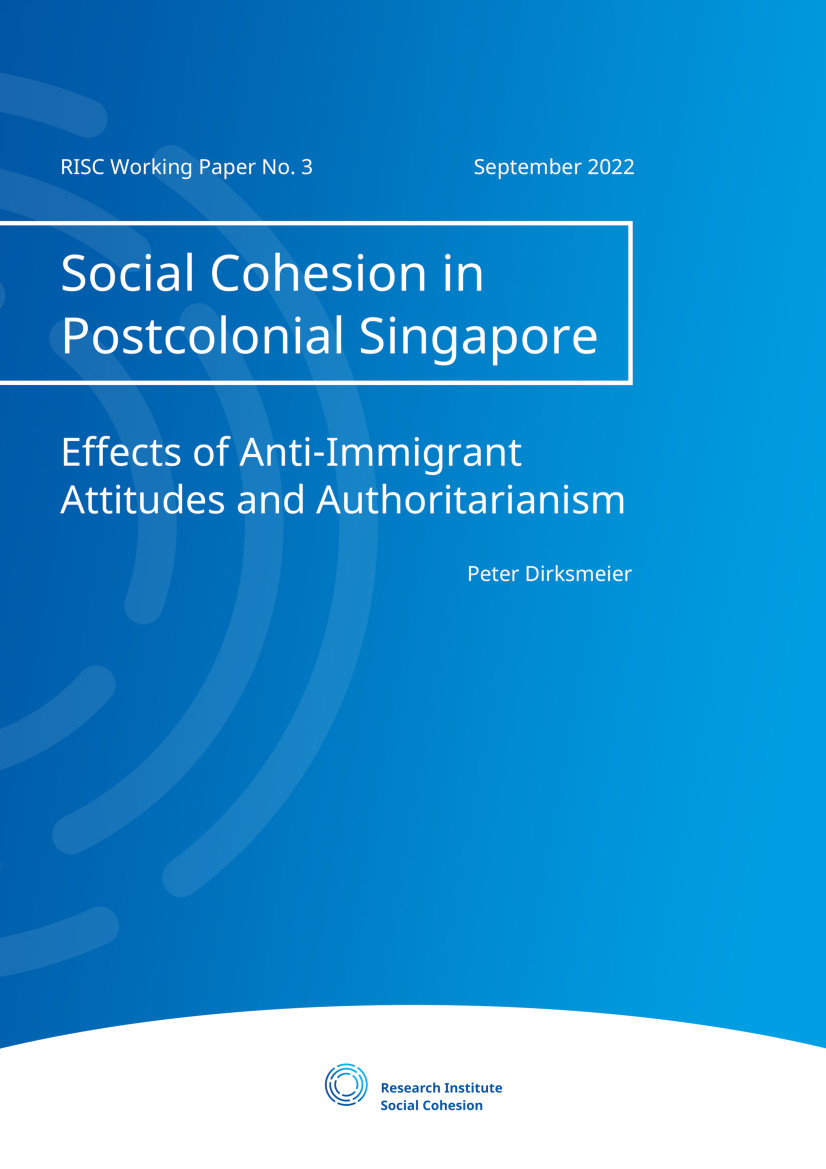Social Cohesion in Postcolonial Singapore: Effects of Anti-immigrant Attitudes and Authoritarianism.
Abstract

The paper presents an examination of the predictors of social cohesion in Singapore based on an analysis of the impact of anti-immigrant attitudes and authoritarianism on the nation’s state-led social togetherness. The binary logistic regression models find that hostility to immigration and trust in state institutions reduces social cohesion, while authoritarian attitudes promote it. The results of the analysis indicate that state support measures for social cohesion in a postcolonial society appear ambivalent. It is striking that the predictors of social cohesion developed predominantly in Western contexts show no or a different kind of influence in Singapore than in Western societies. Consequently, multicultural Singaporean society obviously also reacts to cohesion policies with a stronger differentiation into separate groups. These policies should therefore focus even more strongly than before on societal cohesion.
Sources
Dirksmeier, Peter (2022). Social Cohesion in Postcolonial Singapore: Effects of Anti-immigrant Attitudes and Authoritarianism. RISC Working Paper No. 3. Leipzig: Research Institute Social Cohesion. Reprinted in an edited version in GeoJournal 89/6 (2024).
